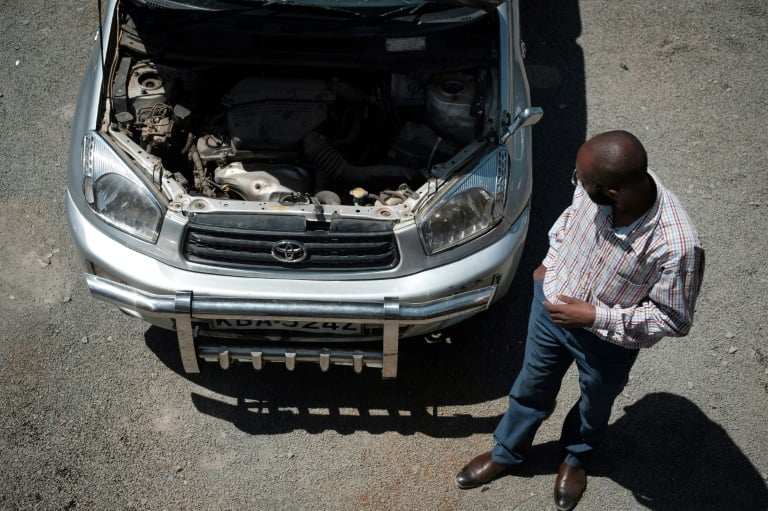“Business goes with politics: if politics go down, business also goes down”, said the 64-year-old, grumbling about the “unhealthy” political climate in Kenya since the Supreme Court’s September annulment of President Uhuru Kenyatta’s election.
Election seasons stifle the economy in Kenya, but this year’s protracted crisis, with many weeks of court disputes and street protests, has been particularly bad for business.
Onyango appears hard at work, hammering a glowing shaft of metal fresh from the forge, but his industry is an illusion. “There aren’t many orders so I’m repairing some of my tools,” he said. In recent weeks Onyango has been forced to fire two of his five employees.
“Political leaders must negotiate among themselves to settle this,” he said. While well-off political elites talk, the “mwananchi” — meaning ordinary folk in Swahili — suffer the most, he said, especially in Kibera, where even in stable times many have to get by on less than a dollar a day.
Onyango’s own weekly turnover has fallen from around 30,000 shillings ($290, 250 euros) before the elections to 10,000 now, he said.
– Growth shrinks –
Across Kenya’s private sector, from small shops to big investors, elections are bad news.
“The private sector, mainly the manufacturers, adopt a bit of a wait and see approach,” said Jibran Qureishi, chief economist for East Africa at Stanbic Bank.

It’s wait-and-see until politics are up and running again
“They stand back, they don’t hire, they don’t build up inventories,” he said. Fear of violence, Qureishi said, is the big issue, since almost every election in the past quarter century has been preceded or followed by killings and protest.
The Kenya National Commission on Human Right documented 37 deaths, all but two at the hands of police, in the days following the August 8 election.
Kenya looked set to return to normal despite anger over President Uhuru Kenyatta’s re-election, but the Supreme Court’s annulment of the result has left the country facing months of uncertainty, and an increasingly tense political climate.
A new election is set down for October 26, however the opposition has announced its withdrawal from the vote, further deepening anxiety over how the process will unfold.
Service industries account for almost half of Kenya’s gross domestic product, but agriculture and manufacturing employ the overwhelming majority.
“If those sectors are not doing well… then purchasing power actually subsides and that eventually filters through to the wider economy,” he said.
Partly thanks to elections, growth is now predicted to fall below five percent for the first time in more than four years.
“Economic activity is the sacrificial lamb,” said Qureishi.
– ‘Politicians are rich’ –
But growth figures do not reflect the reality of everyday Kenyans and especially casual labourers who look for work day-to-day and are struggling more as business slows.
“Prolonged political uncertainty has a more substantial impact on the average Kenyan, on smaller firms, rather than the larger corporates,” said Qureishi.
The thousands of minibus taxis, known as matatus, that ply Nairobi providing transport to the masses reported a 30 percent decline in turnover during September, said Simon Kimutai, president of the Matatu Owners Association.
“People move less, that is very representative,” he said.
Meanwhile, in the upmarket business district of Kilimani, Judy Njogu, an assistant manager at a car dealer, says she is selling fewer than five cars a week, compared with at least 10 in normal times.
“We have a lot of corporate clients and they are a bit sceptical about spending money right now,” she said.
Back in Kibera, John Kebaso who owns a building materials shed, watched passers-by despondently, few of them stopping in the neighbourhood’s many little shops, including his.
“In the government and the opposition, the people fighting are rich people,” he said. “They are people who do not understand the problems of the little mwananchi.”
Download our app and read this and other great stories on the move. Available for Android and iOS.